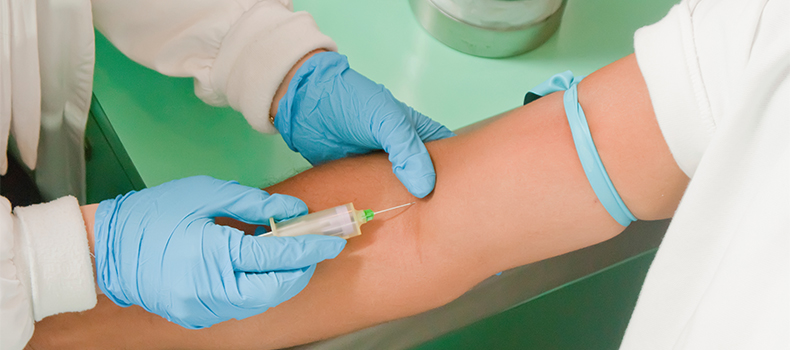Complete Guide to a Phlebotomy Technician Job Description: Roles,Skills,& Qualifications
If your considering a career in healthcare that involves direct patient interaction,precision,and crucial medical procedures,becoming a phlebotomy technician might be the perfect fit. This comprehensive guide provides an in-depth look at the job description of a phlebotomy technician, the essential roles and responsibilities, key skills, required qualifications, and practical insights into this vital healthcare profession. Whether you’re just starting out or looking to deepen your understanding, this article aims to equip you with all the valuable information needed to succeed in this rewarding field.
What Is a Phlebotomy Technician?
Phlebotomy technicians are healthcare professionals trained to draw blood from patients for laboratory testing, transfusions, donations, or research purposes. They play a crucial role in the healthcare system as accurate blood collection is essential for diagnosis, treatment, and monitoring of various medical conditions.
This role requires a combination of technical skills, patient care abilities, and adherence to safety standards, making it a dynamic and essential healthcare position.
roles and responsibilities of a Phlebotomy Technician
The core responsibilities of a phlebotomy technician encompass a variety of tasks designed to ensure efficient and safe blood collection. Some of the primary roles include:
- Patient Identification and Readiness: Ensuring the correct patient is identified and prepared for blood collection.
- Drawing Blood: performing venipuncture using appropriate techniques to collect blood samples.
- Sample Labeling and Documentation: Properly labeling samples and maintaining accurate records.
- Maintaining Equipment: Handling and sterilizing needles, collection tubes, and other tools.
- Follow Safety protocols: Practicing infection control and safety guidelines to prevent contamination or accidents.
- Patient Comfort and Dialog: Explaining procedures, calming anxious patients, and providing excellent customer service.
- Transporting Samples: Ensuring blood samples are safely transported to laboratories for testing.
Key Skills for a Phlebotomy Technician
To excel in this role, a phlebotomy technician needs a specific set of skills, both technical and soft skills, including:
- Technical proficiency: Knowledge of venipuncture, capillary puncture, and blood sample handling.
- Attention to Detail: Ensuring accurate patient identification and sample labeling to avoid errors.
- Interpersonal Skills: Compassionate communication to put patients at ease.
- Steady Hand and Precision: Executing blood draws smoothly and painlessly.
- Knowledge of Safety Protocols: Adherence to OSHA and CDC safety guidelines.
- Problem-Solving Abilities: Handling challenging veins or uncooperative patients effectively.
- Physical Stamina: Ability to stand for long periods and perform repetitive tasks.
qualifications and Certifications for a Phlebotomy Technician
While requirements may vary by state or employer, typical qualifications include:
- High School Diploma or Equivalent: Basic educational requirement.
- Phlebotomy Training Program: Completion of a recognized training course.
- Certification: Certification is highly recommended and frequently enough mandatory, offered through organizations like the American Society for Clinical pathology (ASCP) or National Healthcareer Association (NHA).
- CPR Certification: cardiopulmonary resuscitation certification is often required.
Benefits of Being a Phlebotomy technician
Choosing a career as a phlebotomy technician offers numerous advantages,such as:
- Fast Entry into Healthcare: Short training programs allow for quicker career start.
- Job Stability: High demand across hospitals, clinics, and labs.
- Flexible Work Schedules: Opportunities for part-time or shift work.
- Foundation for Healthcare Careers: Experience that can lead to advanced roles like medical assistant, lab technician, or nurse.
- Rewarding Work: Direct patient interactions and the importance of your role in patient care.
Practical Tips for success in a Phlebotomy Technician Role
- Get Certified: Obtain recognized certification to enhance employability.
- Practice Regularly: Hone your blood collection techniques in training sessions or internships.
- Prioritize Patient Comfort: Communicate clearly and be empathetic to reduce patient anxiety.
- Stay Updated: Keep abreast of safety standards and new techniques in phlebotomy.
- Build Good Relationships: With colleagues and patients for a more efficient work surroundings.
Case Study: A Day in the Life of a Phlebotomy Technician
meet Sarah, a certified phlebotomy technician working in a busy hospital. Her typical day involves:
- Starting her shift by reviewing patient schedules and preparing supplies.
- Greeting patients, explaining procedures, and drawing blood with a steady and gentle hand.
- Labeling and documenting samples meticulously, ensuring chain-of-custody standards are met.
- Handling difficult draws with patience and troubleshooting issues like collapsed veins.
- Collaborating with lab personnel and maintaining a clean, sterile workspace.
sara finds her role rewarding because she directly contributes to accurate diagnoses and patient well-being,making her career in phlebotomy both fulfilling and impactful.
Conclusion
The profession of a phlebotomy technician is an integral part of healthcare, requiring a blend of technical skills, compassion, and professionalism. from drawing blood to ensuring patient comfort and safety, this role offers a meaningful career path with numerous benefits, including rapid entry into the healthcare field, job stability, and opportunities for growth.By understanding the job responsibilities, necessary skills, and qualifications outlined in this guide, aspiring phlebotomy technicians can prepare effectively and embark on a rewarding journey in healthcare. Whether you’re just starting or seeking to enhance your career, becoming a certified phlebotomy technician is a strategic and valuable choice.
Quick Reference: Phlebotomy Technician Job Overview
| Aspect | Details |
|---|---|
| Average Salary | $36,000 – $46,000/year |
| Required Education | High School + Phlebotomy Training |
| Certification | Often Required, via ASCP or NHA |
| Work Settings | Hospitals, Clinics, Labs, Blood Banks |
| Job Growth Rate | 7% (faster than average) |
Embark on your journey to becoming a skilled phlebotomy technician today, and enjoy a fulfilling career that makes a real difference in people’s lives.
